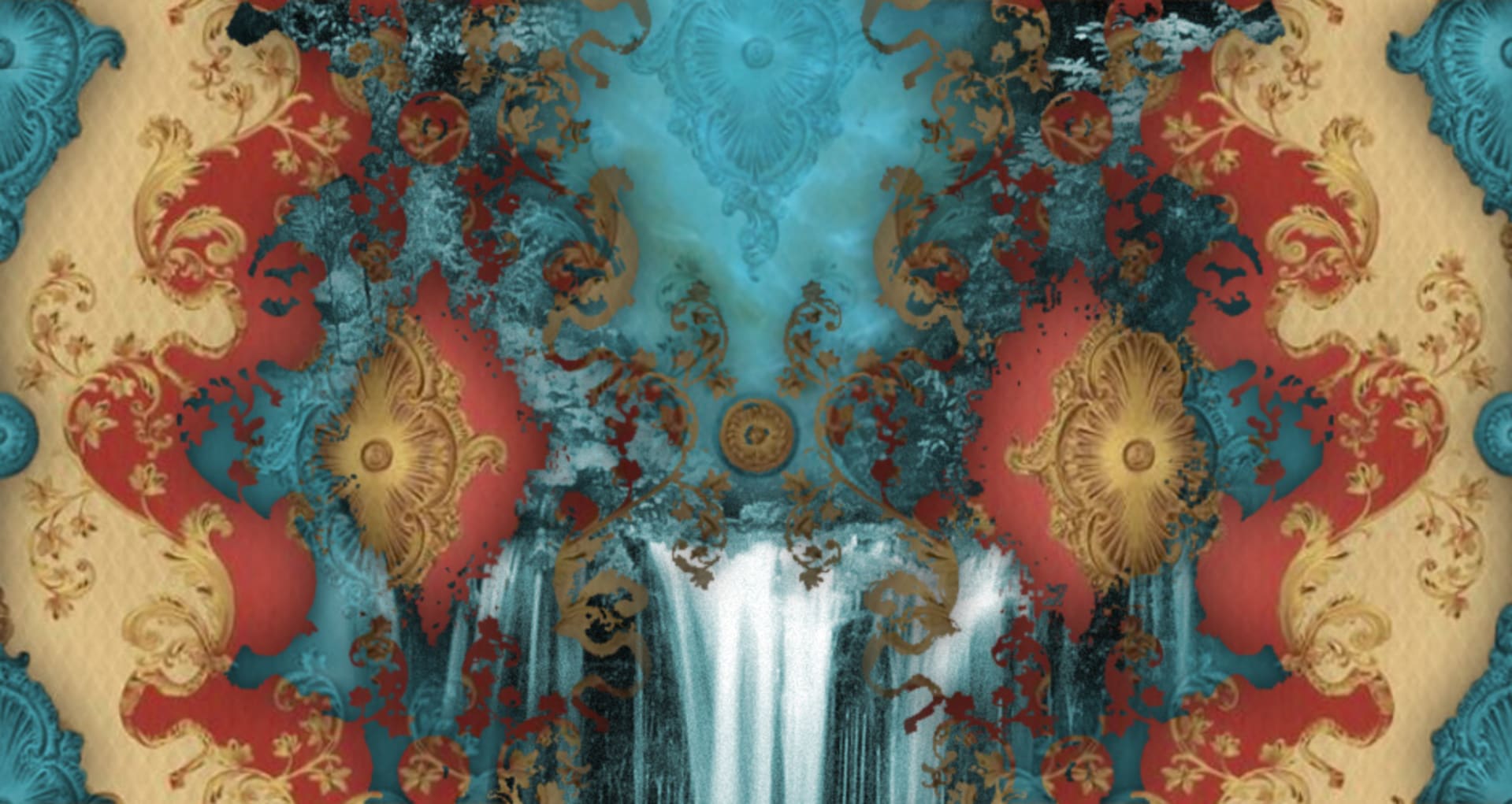
Dis-track-ed Vol. 4: Baroque of Ages
In her monthly column, Ruth Saxelby identifies some of the trends that are shaping modern music. In this edition, the the new Baroque of Gatekeeper, d’Eon, Planningtorock, and more. Illustration by Inka Gerbert.
“Over-attention to detail, flourish to the point of extremity, forbidding flawlessness…” Gatekeeper’s Aaron David Ross is unpacking the appeal of the Baroque period, a sensibility that is clearly evident on their new EP, Young Chronos. While at first glance the leap from the dystopian CGI realms of last year’s Exo to the rigid pomposity of seventeenth century Europe seems like a curious one, Gatekeeper’s high drama aesthetic flicks it into focus. “It seemed like a pretty logical time period for us to explore for a lot of reasons, especially after Exo,” picks up Matthew Arkell. “1600s Europe felt like a nice change of scenery. Going back into the shadows conceptually to create something more malevolent and classical.”
Somewhat amusingly, “Baroque” was originally used as a criticism of the heavily ornate music of Vivaldi, Bach, et al that soundtracked the newly rational Europe of the seventeenth and eighteenth centuries. It comes from the Portuguese word for a misshapen pearl, an etymological illumination that chimes with today’s unquenchable thirst for the weird.
Perhaps engagement with Baroque musical styles is in some way a desire for the implied permanence of classical form in a disposable digital age? “Absolutely—the order, simplicity, dynamic range, and linearity of the music is very seductive. But in trying to practice their established forms, you’re quickly lost looping, processing, layering, etc… which can’t help but dominate the compositional process and dilute the format,” says Ross. “This isn’t a bad thing—obviously we want to re-contextualize this music. But it does mean that trying to create works which yearn for the austerity and threatening effortlessness of that time is mostly impossible now. Except for maybe d’Eon.”
Arkell is more pragmatic: “For me, it’s more about the idea of timeless beauty accelerating to a new point.” While rock royalty dallied with Baroque back in the 1960s (planting the seed for chamber pop along the way), experimental electronic music has by nature been largely invested in inventing futures. Sure, mining a decade or so back for samples was always par for the course but today, when the very notion of ‘futuristic’ feels retro and technology continues to flatten time, the ancient past is finally reborn as new territory. While Gatekeeper have approached Baroque with open arms, they’re not the only ones referencing this fertile era. Here is a selection of new Baroque adventurers.
Gatekeeper – “Sword of the Gathering Clouds of Heaven”
“‘Orbs burning through oil paintings’ was the idea we started with,” says Aaron David Ross of Young Chronos. The video to EP opener “Sword of the Gathering Clouds of Heaven”, made by Thunder Horse Video’s Alex Gvojic, brings that vision to awe-inspiring life. Ancient fires burn and battle wounds spray blood in Gvojic’s eerie animating of Baroque paintings. The overall effect is a Frankenstein-like re-animation of the past. Or, as the track’s Hollywood intro puts it: “Inspired by a true story…”
Planningtorock – “Human Drama”
Berlin-based, British artist Planningtorock is no newbie to Baroque, having previously incorporated music by English composer Henry Purcell into her live show. But on “Human Drama”, taken from her politically charged new album All Love’s Legal, her pop take on the form injects her message with the required gravitas. Harpsichord-like synths and plucked strings converge in a stately court dance that seeks to affirm, once and for all, that gender is just a lie.
Slackk – “Shogun Assassin”
Grime has long had an ear for mind-opening juxtapositions, something that London producer Slackk knows inside out. He’s experimented with the lute before, albeit with more of an Eastern folk music stance, but on his recent EP for Local Action he went for the Baroque jugular, slamming operatic roars against accusatory synth lines on “Shogun Assassin”. Feel the wrath.
d’Eon – Blackout (Music For Keyboards IV)
As Gatekeeper point out above, few come close to Montreal artist d’Eon’s commitment to sincere exploration of traditional instrumentation and composition. The fourth installment of his Music For Keyboards series takes a Baroque approach to emotional expression, focusing in on a single mood per track in an abstract, painterly fashion.
Benji B’s string ensemble
Perhaps we should’ve seen the new Baroque revolution coming. As the ashes of 2012 died down, BBC Radio One‘s Benji B was busy working with his arranger/conductor pal Grant Windsor and a sixteen-piece string ensemble. Together they recorded melodramatic new versions of contemporary classics from Kanye to Wiley, and Timbaland to TNGHT. While they the end result is more James Bond theme tune than Bach, the ornamentation intention is clear. ~
For more editions of Dis-track-ed, click here.
Published November 26, 2013. Words by ruthsaxelby.
